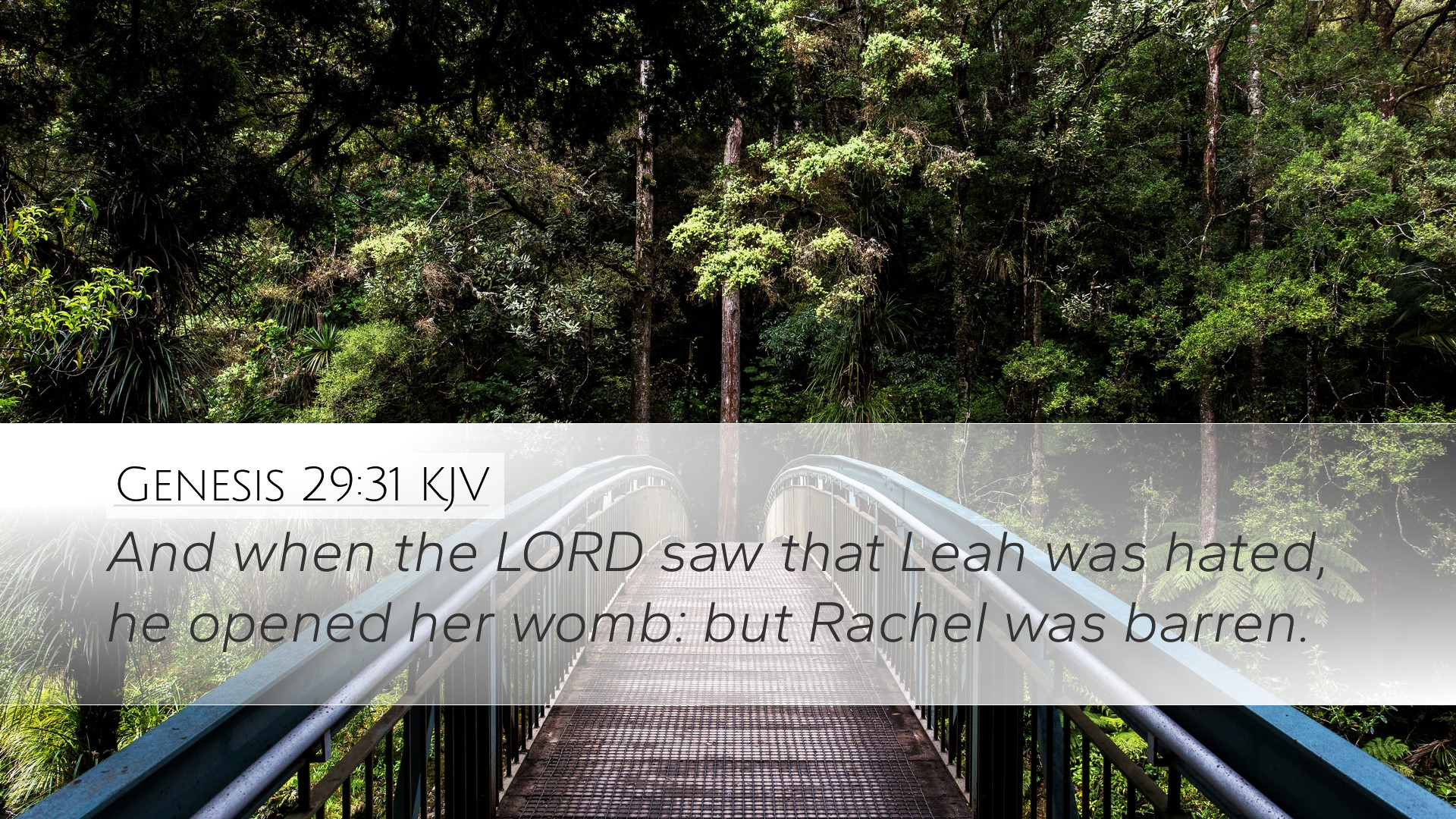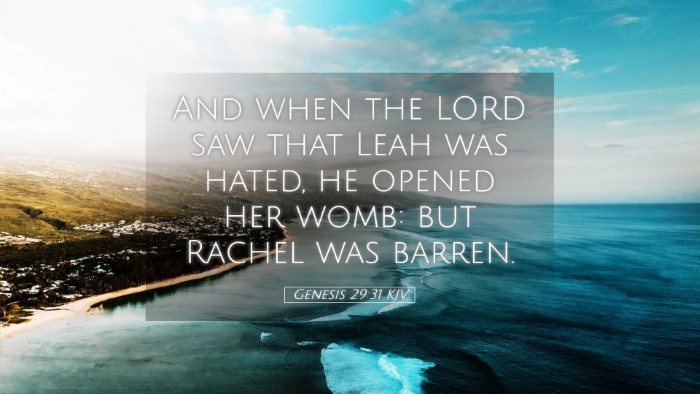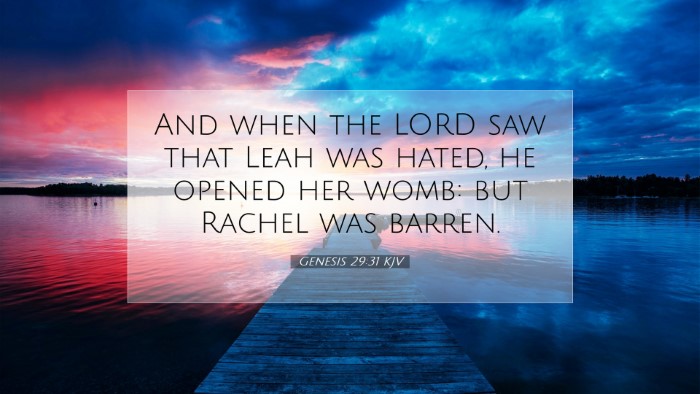Commentary on Genesis 29:31
Verse Text: "And when the Lord saw that Leah was hated, he opened her womb: but Rachel was barren."
Introduction
Genesis 29:31 introduces a pivotal moment in the patriarchal narratives, illustrating themes of divine intervention, human emotions, and the complexities of familial relationships. The verse reflects God's awareness of Leah's plight and sets the stage for understanding the broader narrative of the twelve tribes of Israel.
Commentary Insights
Divine Perspective on Human Relationships
Matthew Henry emphasizes that God looks beyond superficial affections and evaluates the hearts of individuals. Leah, although unloved by Jacob, receives God's favor as He opens her womb, which is indicative of her worth in God’s eyes, contrasting the rejection she faces from her husband. This demonstrates God's providential care, especially for the marginalized.
Albert Barnes adds that this act of God serves as an exemplification of His mercy towards those who are overlooked. Leah represents those who may feel disenfranchised or unloved, yet God acknowledges their suffering and responds to their plight. This reflects the broader biblical principle that God’s favor is often bestowed upon those who society may undervalue.
The Significance of Barren Rachel
Adam Clarke focuses on the contrasting fates of Leah and Rachel, underscoring Rachel's barrenness as a source of deep anguish and societal shame. In ancient cultures, fertility was revered; thus, Rachel’s inability to bear children added to her misery. Clarke notes that the different reactions to Leah's fertility and Rachel's barrenness illustrate a theological lesson regarding God's purpose behind human circumstances.
God’s Intervention
This verse highlights God’s intervention within human affairs. Matthew Henry points out that God’s opening of Leah’s womb symbolizes the beginning of significant events that will unfold in the nation of Israel. Leah becomes the mother of six of the twelve tribes. Thus, unforeseen circumstances in life can lead to divine fulfillment of promises and purposes.
The Nature of Love and Hate
The tension between love and hate in this passage is notable. Albert Barnes elaborates that Leah’s position as Jacob’s first wife, juxtaposed against the loved Rachel, creates an environment fraught with emotional complexity. This duality demonstrates the struggles of the human condition and the conflicts that arise from polygamous relationships, which were culturally accepted yet fraught with complications.
Lessons on Acceptance and Worth
The narrative encourages believers to reflect on their own perceived worth and standing. Adam Clarke reflects on the notion that one’s identity is not tied to human affection or societal standards but is rooted in how God views and values each individual. Leah, though unloved, finds her identity as a favored and chosen vessel of God’s promise.
Implications for Spiritual Leadership
For pastors and theologians, this passage serves as a reminder of the importance of compassion and inclusivity. Matthew Henry urges leaders to recognize the significance of those who may feel rejected or overlooked so that they might create communities reflective of God’s love and grace. Every individual, regardless of their social standing or familial relationships, has intrinsic worth in God’s sight.
Conclusion
Genesis 29:31 is a powerful testament to God's concern for the downtrodden and His ability to work through human circumstances. It speaks volumes about the divine plan at work in a seemingly chaotic and painful situation. Understanding Rachel and Leah's narrative through God’s lens allows for deeper insights into the nature of love, acceptance, and providence. In a world where many feel unloved or unappreciated, this passage brings hope and assurance of divine recognition and purpose.


